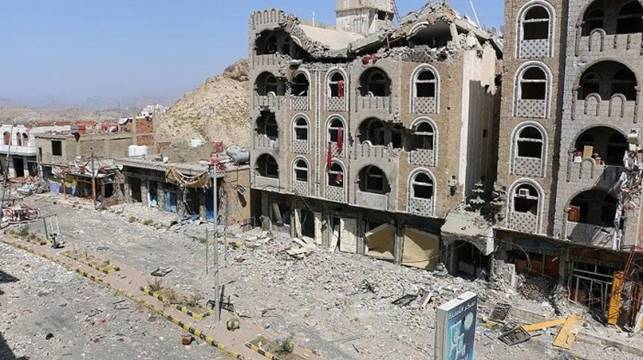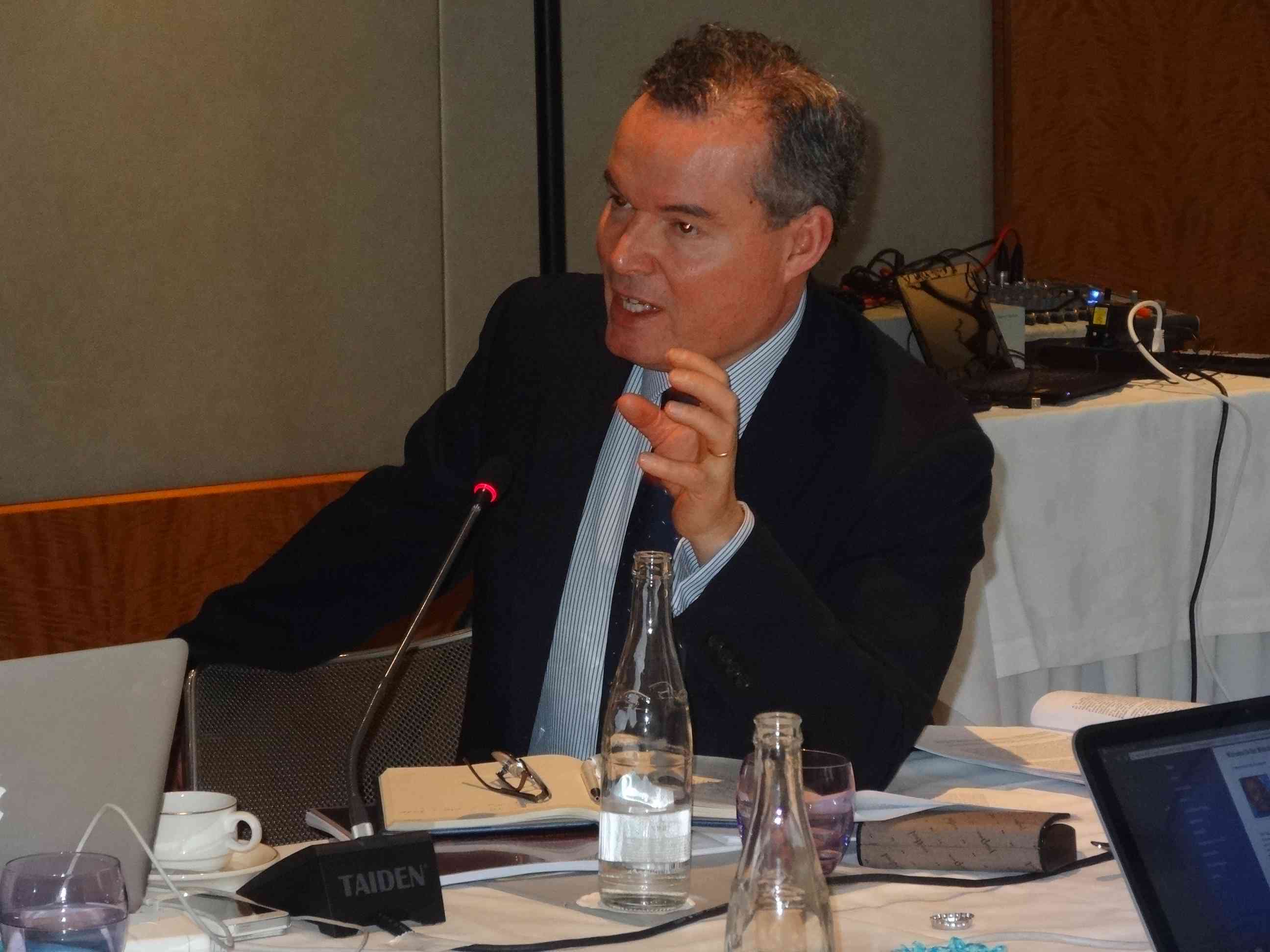Roundtable Discussion on the International Legal Issues Surrounding the Funding and Arming of Rebel Groups in Yemen

Press Release
Geneva, 23 December 2015
Geneva International Centre for Justice (GICJ) and the London Centre for International Law Practice (LCILP) convened a roundtable of experts to discuss the international legal issues surrounding the funding and arming of rebel groups in Yemen, as part of a joint event series entitled International Legal and Humanitarian Issues surrounding conflicts in the Middle East.  The roundtable coincided with the conclusion of the most recent peace negotiations, which commenced on 15 December, relating to the ongoing conflict between the internationally recognised Government of Yemen and armed Houthi rebels. Peace talks will resume on 14 January 2016.
The roundtable coincided with the conclusion of the most recent peace negotiations, which commenced on 15 December, relating to the ongoing conflict between the internationally recognised Government of Yemen and armed Houthi rebels. Peace talks will resume on 14 January 2016.
The discussion provided a detailed factual analysis of the events causing the escalation of violence and humanitarian crisis in Yemen, and of the different stages of peace negotiations between the Government of Yemen and the rebel groups.
International Law in Context In this context, the debate focused on international legal issues arising under customary international law, international humanitarian law and international human rights law. In particular, the experts considered the classification of the armed conflict in Yemen and the implications of this classification on the protections afforded under international humanitarian law.
In this context, the debate focused on international legal issues arising under customary international law, international humanitarian law and international human rights law. In particular, the experts considered the classification of the armed conflict in Yemen and the implications of this classification on the protections afforded under international humanitarian law.
Participants analysed the interplay between international human rights law and international humanitarian law, between the counter-terrorism framework and international humanitarian law, and the effects of this on humanitarian organizations. The discussion considered the general international law principle of non-intervention and its relationship with the provision of arms to rebel groups.
Human Suffering
Experts have highlighted the human suffering to which civilians are subject to in this conflict. Civilians in Yemen have been suffering in terms of both physical and mental health as well as displacement. It has been reported that 2.5 million Yemenis – 14.4 million Yemenis including 7.5 million children - are displaced persons and that half of the Yemeni population is in immense need of human aid, protection and assistance by the international community.
Additionally, 2.2 Yemeni children are suffering from malnutrition including 537,000 children who are under the age of five are suffering from severe malnutrition. The crisis has also endangered the future of Yemenis as 3500 schools have been shut across the country and children are forced to fight instead of being taken to schools.
Furthermore, the debate highlighted three key humanitarian issues arising out of the crisis in Yemen:
- the use of landmines by Houthi rebels,
- the recruitment and use of children as soldiers, and
- the shelling of civilians and civilian objects by rebel groups.

Recommendations, UN Resolutions and Peace for Yemen
The roundtable experts proposed some recommendations in relation to the crisis in Yemen, which include:
- emphasising on the importance of the full implementation of UN Security Council Resolution 2216 (2015), the outcome of the National Dialogue Conference and the Gulf Cooperation Council Initiative, as the cornerstone for the reformation of the state of Yemen with the ultimate goal of achieving peace for the country,
- calling on the international community to assist in ensuring humanitarian access to Yemen and in bringing about a peaceful resolution to the conflict,
- ensuring that the prohibition on the supply of arms to rebels is properly implemented,
- ensuring that the prohibition on financing rebels is properly implemented,
- that the sanctions designed to enforce such a prohibition are not subject to abuse or extensive interpretation of states,
- examining the available international instruments, including criminal prosecution, that are designed to counter terrorism and protect civilians,
- implementing strict measures to counter illegal finance of terrorists and illegitimate armed groups such as the global terrorist group of Al Qaeda and the Iran-backed Houthi rebels, and
- that the International Committee of the Red Cross should ensure that the parties fully understand their obligations under international humanitarian law including safe corridors for civilians.
Participation of GICJ at Human Rights Council Sessions
Human Rights Council - 35th regular session (6 June - 24 June 2017)
Human Rights Council - 34th regular session (27 February - 24 March 2017)
Human Rights Council - 33rd regular session (10 September - 30 September 2016)
Human Rights Council - 32nd regular session (13 June - 1 and 8 July 2016) Human Rights Council - 31st regular session (29 February - 24 March 2016)
Human Rights Council - 30th regular session (14 September - 2 October 2015) Human Rights Council - 29th regular session (15 June - 3 July 2015) Human Rights Council - 22nd special session on the human rights situation in Iraq in light of abuses committed by the Islamic State in Iraq and the Levant and associated groups - 1 September 2014: Human Rights Council - 21st special session on the human rights situation in the Occupied Palestinian Territory, including East Jerusalem - 23 July 2014: Human Rights Council - 26th regular session (10 - 27 June 2014): Human Rights Council - 25th regular session (3 - 28 March 2014): Human Rights Council - 24th regular session (9 - 27 September 2013): Human Rights Council - 23rd regular session (27 May - 14 June 2013): Human Rights Council - 22nd regular session (25 February - 22 March 2013): Human Rights Council - 21st regular session (10 - 28 September, 5 November 2012): Human Rights Council - 19th regular session (27 February - 23 March 2012): |
||




